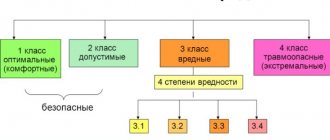Each person, guided by intuition, can distinguish the loyal behavior of someone from the opposite. In general, it manifests itself in devotion to someone or something. If we talk about the loyalty of personnel in an organization, then here we are talking about devotion to the company, management and colleagues. A normal level of loyalty indicates that employees strive to conform to the organizational culture of the company, accept its policies and are ready to follow the principles defined by management to achieve common goals.
However, it is not always possible for the management of an enterprise to achieve the required level of loyalty of its own personnel, which entails a lot of problems. This article will help you understand what it is, how to determine the level, and will also tell you about ways to build staff loyalty within the company.
Employee loyalty. 24 ways to increase employee loyalty.
1. Praise your employees. Praise is an important condition for employee loyalty to management and the entire company. It will not be difficult for the management to once again say “Thank you” to the employee for the work done. For example, gratitude to the secretary for a competent meeting schedule. It’s just enough to say “Thank you” so that in the future the secretary will be interested in performing his functions even more efficiently.
2. Address the employee by name. In small companies, managers know their employees by name. But with a constant increase in the number of employees, certain difficulties may arise in remembering the names of all employees. General Director of the Liveinternet portal German Klimenko recommends recording the names of employees in a diary if you have problems remembering everyone. Employees have been working in his company for 15-20 years - and experience confirms that nothing sounds more pleasant to a person than his own name.
3. provision of additional rest. Many managers can attest to how important additional rest can be for employees in the form of time off, the ability to come in later or leave work early. Such privileges are not always offered and not to everyone - you need to earn such a right. For example, the editors of the magazine “General Director” allow the author of the most popular Facebook post of the week to leave early on Friday. This type of staff motivation has proven itself in practice.
4. presentation of memorable gifts. Widespread personnel motivation (especially for employees of manufacturing enterprises. Employees are awarded certificates, cups and other symbolic awards. General Director Andrei Medvedev has seen from his own experience how effective this approach can be. His factory employees liked it, such encouragement has become honorable. But At the same time, gifts have proven to be an effective way of motivation not only for employees of manufacturing enterprises. Also, do not forget about the families of your employees. Sometimes a great gift for an employee’s wife turns out to be a more effective motivation than giving it to him himself.
5. career prospects. Quite effective motivation of staff, as stated by the employees themselves. After all, career prospects can inspire and motivate to achieve excellent results at work, contributing to the success of the company. The employee understands that he has a chance to achieve new positions and prospects in the company thanks to his efforts. In particular, in practice, 15% of employees receive an increase annually. Also, many companies adhere to the practice of cultivating their top managers from ordinary managers.
6. clear objectives and evaluation criteria. A third of directors adhere to transparent systems when setting goals and monitoring results. In particular, director Ilya Rubtsov adheres to such priorities - he draws up a schedule on a sheet of A3 format. The vertical axis of such a graph becomes a reflection of the importance of the task, while the horizontal axis indicates labor intensity. He puts a sticker on his schedule with completed tasks to visually reflect his priorities.
7. the opportunity to express your opinion and be heard. In the work of the company, many managers prefer to involve ordinary employees in solving global problems of their companies. It is important for an employee to feel the significance of his contribution to the overall development of the company. In addition to motivating employees, this approach allows you to get quite useful ideas and recommendations from employees, because in many ways they know better how the company works, since they work directly with clients. This approach will help identify various controversial and weak points in the company’s work. In particular, the co-founder of the Tonus Club network, Irina Chirva, invites her employees to determine 3 indicators by which their work will be assessed. Based on the responses received, I was able to form a KPI assessment system and implement it in the company’s activities.
8. personal contact with the head of the company. Personal contact with employees with whom management is not obligated to meet due to their status is important. Many famous entrepreneurs and successful businessmen resort to this approach. For example, world business legend Richard Branson decides to answer letters from his employees personally. The general director of the Armstrongmachine company provides each employee with salary checks personally, asking if there are any problems. In his work, Steve Jobs invited his subordinates on long walking walks, during which he had the opportunity to discuss issues or problems that had arisen in a relaxed atmosphere.
9. free lunch. Some companies organize free lunches once a week. One day, free delivery of sushi, pizza, etc. is provided to employees. This type of staff motivation is mainly widespread in the work of IT companies.
10. honor board. Personnel motivation involves recognition of an employee's results and achievements over a certain period. In particular, McDonald's is known for its “Best Employee of the Month” stands, and the Fitness Martika chain (Barnaul) is called “general workers.”
13. corporate gatherings. 10% of managers in our country periodically gather their team for various celebrations in a bowling alley, bar, etc. Many employees like this approach of holding informal evenings. Excellent opportunities are created for joint leisure in a relaxed atmosphere, and simply a great chance to relax and gain strength for future work successes.
14. public gratitude. For example, the general director of the “Favorite Children” chain of children's goods stores walks through the offices in the central office every day, noting and thanking employees who have successfully completed their tasks. Gratitude turns out to be much more important if it is backed up with a useful gift. Usually a minor gift is enough, although sometimes it can be serious - for example, a trip to a sanatorium. Public gratitude to a very employee is pleasant. But try to express your gratitude correctly so as not to affect the feelings of other employees.
15. discounts on services. A fairly effective motivation for staff in various organizations is corporate discounts for employees on various products and services of their company. Employees perceive their savings positively, and loyalty to the company increases. Attention! Only if the company specializes in several areas of its work, then it is simply impossible to do without providing such corporate discounts.
16. provision of bonuses. At the end of the year, all employees expect to receive various gifts, bonuses and bonuses from their employer. They can be presented as achievements of set goals and plans—providing employee motivation. When calculating, you can use a nonlinear scale. Payment of a 100% bonus if goals are achieved by 90% or more, 50% - if goals are achieved by 80%, if this figure is less than 70%, then no bonuses are provided. The size of the bonus can be equal to a fixed amount - for example, two monthly salaries or more. Bonuses for top managers are higher; they can be paid in several stages, including in December and March, since not every company can plan large payments at the end of the year.
17. motivation board. Few managers know this term, we will talk about it in more detail. In fact, a motivation board is a standard marker board, which is a visual dynamic indicator of the sales level for the current date for each department or manager, and also becomes a reflection of the employee’s personal contribution to the common cause.
Experience confirms that it is possible to achieve an effect thanks to a motivation board after just a week of use. In the past, the worst managers understood that their poor sales could go unnoticed. Now an exciting game and competition begins, because no one wants to be the last. At the same time, the spirit of competition still does not prevent managers from supporting each other. They can see how much time is left until the sales plan is fulfilled, and they begin to encourage the rest of the employees—the team spirit kicks in.
18. payment for employee training. To achieve professionalism in any job, it is important for an employee to strive for improvement in his specialty. After all, an employee who is passionate about his learning will definitely be able to achieve career growth and improve his skills, with the development of additional skills. Therefore, training and knowledge can be an important motivating factor. There can be various ways for such motivation. This includes sending employees to participate in conferences, trainings, etc. Additional knowledge should be made an advantage in order to inspire employees for their further education.
19. payment for a fitness club subscription. A fairly effective motivation for paying employees for hobbies and hobbies is. Such hobbies usually refer to visiting a fitness center. Moreover, if employees are focused on improving their physical condition, then they are more focused on achieving their goals. But not everyone enjoys going to the gym. Some may be more interested in art school or piano lessons. Each person is individual, so their hobbies vary.
20. control as a way to motivate staff. Many managers are convinced of the need to control employees. Control really allows you to motivate employees. The main idea is to provide employees with the opportunity to make independent decisions on all issues for which centralized control is not required. Allow employees to change any aspect of their work environment on their own as long as it does not pose a threat to the company's image or safety. One company in particular allows employees to wear headphones to work while enjoying their favorite music. Many companies do not prohibit employees from decorating their workplaces. Give employees more decision-making freedom within reasonable limits to achieve effective motivation.
21. salary. Salary is one of the main ways to motivate employees. Therefore, if you cannot initially provide a sufficient salary for an employee, then other methods will turn out to be ineffective and secondary. Comfortable salary levels vary for different employees. It is important to understand what salary level will be constant and what will be flexible.
22. bank of ideas. You should be interested in the opinions and thoughts of your employees. Many employees may have really useful and effective ideas, but do not see interest in them. Although most managers are interested in employees sharing relevant thoughts and ideas, not all managers simply know how to ask. Most of them simply interrupt the employee and reject his initiatives, which deprives employees of self-confidence and motivation. To solve this problem, it is better to get a notepad, file or other documents in which employees’ ideas will be recorded. Thanks to this approach, managers soon begin to listen better to employees, who can offer some pretty useful ideas.
23. employee profit sharing/option. An option is one of the instruments for employees' equity participation in the company's capital. Such an instrument has become a replacement for partnership or simple corporatization of personnel. In Russian practice, option programs are considered a relatively young phenomenon. Just a few years ago such cases were rare. The main goal is to focus the company's management on long-term growth of capitalization and increasing employee loyalty to the employer company. The loyalty of managers to the company is especially relevant today, when economic growth is causing a shortage of highly qualified employees. Because of this, compensation and staff turnover increase. The introduction of option programs helps to effectively solve both of these problems.
24. payment for travel and mobile communications. Many employees are interested in paying for their travel or mobile phone costs, as these can be quite significant. Naturally, such bonuses will be pleasant for your employees. It would seem like a small thing, but it’s nice!
About the sense of belonging and self-realization
Being involved in something important is a need for everyone and a good way to increase motivation. But such motivation must correspond to the level of the specialist, his capabilities and talents. And the boss’s task is precisely to recognize in advance what an individual employee wants and to select the right tasks for him.
It is advisable to find tasks for employees that not only are needed by the company, but were also of interest to the performers. And be sure to convey to people the value of the results they achieve, because everyone is doing a common job. As a result, you will get professionals who are loyal to both the project and the company. Remember that a motivated employee works better and solves problems more effectively.
If a manager sees the fire in the eyes of his employees and finds a sense of belonging in them, he is on the right track. It is very important that a person solves problems that he solved a year ago more easily and quickly. But it is even more important that a person can solve problems that a year ago were beyond his power . And the employee’s achievements will inevitably affect the company’s achievements.
A competent manager does not miss the moment when an employee outgrows his current job, and does not hesitate to offer something more interesting, complex and promising, placing a newcomer in the vacant position.
If you add other comfort factors to the feeling of belonging and professional self-realization (decent salary, objective assessment of abilities, free fitness, private kindergarten, relatively free schedule, correct choice of activity), you will form a very stable loyalty even among those who are very in demand in the IT market -specialists. And they will want to go anywhere, and this costs a lot, especially in our era of constant “headhunting.”
Employee loyalty. Staff loyalty
- Hidden. The form of manifestation is a superficial, formal attitude towards the requirements of management and their compliance. The performance of labor functions is dictated by the fear of losing a job and the desire for material rewards.
- Open. Sociologists often define this type as frontism. It manifests itself in an openly disrespectful, ironic and even sarcastic attitude towards the principles of the organization. The company is considered solely as a source of material benefits with complete disregard for the requirements of the administration.
- In actions. Most members of the team are characterized by this level. Employees perform their duties almost automatically. They take part in traditional group activities. There is no emotional or ideological component to such loyalty, but it is precisely this that determines the level of discipline of the team.
- In conviction. It is typical for top management. High production rates become a personal challenge. Recognition of the authority of management is born not only from an assessment of the personal qualities of the employer, but also from the understanding that the authority of management is necessary for maximum efficiency in work.
- At the level of identity. The highest level is achieved by integrating one's own interests with the interests of production. It is this category of personnel that is distinguished by maximum work capacity and achievement of the best results.
About the project in which a questionnaire was used to assess loyalty
The customer needed to solve two problems.
Task 1 is to assess, through a survey of employees, the managerial competence of managers and conduct a consultation with each of them, during which to provide recommendations for improving the quality of management.
Task 2 is to assess the level of employee satisfaction with various aspects of work and build ratings of departments based on satisfaction indicators and their dynamics.
Mandatory conditions were the anonymity of the survey and public communication of the results obtained to the survey participants.
Increasing employee loyalty to the company. Ways to increase staff loyalty
Employee loyalty is based not only on money. Non-material incentive factors are becoming increasingly important. And this is the second condition of loyalty. Recognition by colleagues and management, understanding of the importance of activities, responsibility and a sense of competence, opportunity for professional development, prestige of work are very important conditions for goodwill and respect for one’s company. Their absence, as a rule, depersonalizes the attitude of employees and top management. If management is accustomed to not noticing the achievements of staff, it is very easy to experience personnel instability and even employee escape. As part of non-material incentives, loyalty can also be increased through social packages (various types of insurance, preferential holidays, payment for sports clubs, exclusive prices for certain services of partner companies). However, it is necessary to take into account the individual characteristics of employees. After all, people have different goals - both life and professional. Failure to pay attention to this factor can negate all management efforts.
Factors of occurrence
The process of managing staff loyalty is unthinkable without knowledge of what factors can influence its occurrence among employees of the organization. The following factors are identified:
- the employee’s existing experience (model of previous business relationships at previous places of work);
- personal values;
- providing due attention to the employee;
- feeling of pride.
It is worthwhile to dwell on each factor in more detail. Speaking about existing experience, they mean the degree of trust in the company that a person had at his previous place of work. In order to understand how difficult it will be to instill a sense of loyalty in a person, it is necessary to clarify with him during the interview how well he got along with colleagues and management at his previous place of work, what suited him and what outraged him, as well as what kind of relationship should be between colleagues and leadership. Based on the answers, you can determine how well a person will fit into the existing level of loyalty and how difficult it will be to instill this feeling in him.
The formation of personal values is directly related to existing experience. A person’s beliefs about certain phenomena are extremely difficult to change. If a person is confident that professionalism does not affect career advancement, and that it is possible to get a highly paid position only by having personal connections, then it is difficult to expect behavior from him that indicates the opposite.
An extremely important factor in the formation of staff loyalty is the attention given to each employee by the enterprise. In this way, the importance of a person for the company can be noted. Perhaps this factor can also be called human, since when working with people it is important to emphasize that he is not just an employee, but part of one whole mechanism, and that he deserves the trust of the company. It is extremely important to remember here that each person evaluates attention differently, since for one person congratulations on holidays will be enough, for another there will be nothing better than financial encouragement, and for a third, determining an individual work schedule. But in any case, it must be remembered that the company’s attention to its employees must at the same time be comprehensive, adequate and not harm general discipline.
The next factor influencing the formation of loyalty is pride in belonging to the company and team. When a company achieves success, each employee experiences certain feelings, and if at the right time you point out to the staff that this is the merit of each of them, then you can increase the feeling of joy for the goals achieved and make employees proud of the team, themselves and the company as a whole.
How to increase employee loyalty.
Loyalty means a benevolent, respectful, correct attitude towards the company and management, compliance with all established rules and regulations, even in case of internal disagreement with them. In a general sense, this means the commitment of employees to the organization, approval of its mission and goals, and methods of their implementation.
There are different types of loyalty:
- external: represents compliance with the rules and mandatory procedures established in the company,
- internal: this is a deeper relationship that is associated with the thoughts of the employee, with the coincidence of his personal values with the values of the company.
Naturally, it is very easy to improve the external component: you just need to develop ways to monitor compliance with established rules and procedures in the company. The problem of the internal component is not so simple and requires a lot of effort and expense on the part of management. It is about increasing internal loyalty that will be discussed below.
What will reduce employee loyalty to the company. Levels of staff loyalty to the company
- Zero loyalty. It is important to understand that lack of loyalty does not imply disloyalty - this is how you can characterize the attitude towards the company of an outsider or a newcomer who has not yet had time to form his own opinion.
- Loyalty at the level of external attributes. These are external signs that allow one to associate a person with a specific company - clothes with company logos, notebooks, mugs, etc. Already at this level, an employee psychologically cannot demonstrate his disloyalty, since he has to speak on behalf of the company.
- At the level of actions. This involves the new employee copying the lines of behavior set in the team - participation in corporate events, etc.
- At the level of belief. In this case, the employee is inclined to act for the benefit of the company, correlating his interests with the interests of the team. It is enough if at least 15% of employees reach this level.
- At the level of identity. This is the highest level when an employee sees his life in the same way as the life cycle of a company, and correlates its ups and downs with his own.
How to interpret the data
You distribute the questionnaires, receive them completed, and combine all the data into one array.
An indicator of the level of employee satisfaction is the median of the array of scores.
The logic of using the median is very simple - if its value falls on a “positive” score, then this indicates more than 50% satisfaction of respondents, which can be considered a good result.
There will always be dissatisfied people; you need to seriously worry when their number exceeds 50% of the total number of respondents.
Of course, it would be great for everyone to be 100% happy, but that doesn’t happen.
You can analyze the comparative importance of individual aspects and the reliability of their positive and negative dynamics, using absolute values or data as a percentage of the total number of respondents.
The possibilities for calculating ratings are limited only by the mathematical imagination of the interpreter - you can calculate the sum of points, you can multiply the points by the significance of the aspects and add them after multiplication, you can take into account the dynamics - any option will do.
Employee loyalty to the company. Employee loyalty
Loyalty means a benevolent, respectful, correct attitude towards the company and management, compliance with all established rules and regulations, even in case of internal disagreement with them. In a general sense, this means the commitment of employees to the organization, approval of its mission and goals, and methods of their implementation.
There are different types of loyalty:
- external: represents compliance with the rules and mandatory procedures established in the company,
- internal: this is a deeper relationship that is associated with the thoughts of the employee, with the coincidence of his personal values with the values of the company.
Naturally, it is very easy to improve the external component: you just need to develop ways to monitor compliance with established rules and procedures in the company. The problem of the internal component is not so simple and requires a lot of effort and expense on the part of management. It is about increasing internal loyalty that will be discussed below.
What is employee loyalty? What is the concept of loyalty?
Many managers, dreaming of a loyal employee, mean a trustworthy person. But these concepts are significantly different. Integrity is about following the norms, laws and rules that are accepted in the organization. But such actions may simply be a formality. Loyalty is based on the goals and desires of employees, which must completely coincide with the aspirations of the company.
What is employee loyalty? This is a situation where each employee strives to achieve the company's goals in his activities. This becomes possible if the aspirations coincide with his own vision of the future of the organization. Such a person is ready to put up with the current requirements of the company, as well as accept a number of others. If a company plans to operate in the market for a long time, then it must take care of the loyalty of its staff. This point in the work should be one of the leading ones. It is very important to be able to motivate employees. After all, the success of the company depends to the greatest extent on how deeply the manager understands what the loyalty of his subordinates is. This is a very important quality. And in the absence of one, it needs to be developed.
What it is
The history of the development of the study of personnel loyalty began almost 50 years ago abroad.
In Russia, this phenomenon began to be actively studied in the 90s of the last century. As a result, a concept was formed, defined as the ability of an employee to accept and follow the norms and rules of the company without significant effort on himself, to share the values of the organization, manifesting this in daily work behavior and interaction with employees and external partners. It is customary to distinguish the following types of staff loyalty according to the severity of their quality:
- Affective, based on dedication to the organization, a positive emotional attitude towards working in the organization. Such employees are able to feel a sense of pride in the company, joy not only for their own achievements, but also for the overall results achieved by the entire team.
- Behavioral, formed due to a long period of work at the enterprise. Such specialists share the goals and values of the organization and are ready to work for a long time without changing their place of employment.
- Normative, based on the principle of obligation: the employee believes that he is giving knowledge and skills to the enterprise, performing his work efficiently, in exchange for the conditions created for him. For such employees, evaluation of their work and feedback on the quality of the result are important.
Loyalty program for employees. How to prepare staff for the implementation of a loyalty program
For the successful functioning of a mobile loyalty program, the staff is no less important than the establishment’s audience itself (see the article on customer retention “Why customers leave the loyalty program and how to avoid it”). Properly carried out work on personnel training is an important step in the process of implementing the program, which should not be forgotten in any case.
Tell and show An understanding of what a loyalty program is and why it is needed must be formed even before its implementation. If this doesn’t happen, it doesn’t matter, everything can be fixed. But it is necessary to conduct training for employees as early as possible. One of the biggest mistakes a business can make when launching a loyalty program is presenting employees with a fait accompli without thorough and detailed explanations. Employee confusion in this case is natural. Already difficult-to-adopt innovations feel like a solution imposed from above with no benefit to employees or customers. And the loyalty program in this case will become an uncomfortable tool that everyone will avoid. To prevent this from happening (and this is exactly what any entrepreneur should strive for), you just need to follow a few simple steps.
1. Tell employees what a loyalty program is. Surprisingly, the fact is that a loyalty program is not a mechanism that is obvious to everyone, but rather a new and unfamiliar territory. For example, why is it needed and what goals does it serve? It is necessary to talk about the fact that a successful loyalty program helps reduce marketing promotion costs, regularly receive feedback from customers, increase the customer focus of the entire business, collect and analyze data on the behavior and preferences of visitors, and much more. Employees don’t need to have a detailed understanding of every aspect to understand what a mobile loyalty program is and what areas it will have a direct impact on.
2. Show how everything works In order for an employee to safely use the loyalty program, he must understand how it works. And the question is not only how cards are validated by employees, but how it works for the visitors themselves - how to receive a gift, for which additional points and bonuses are awarded, how promotions work, how this or that marketing campaign works, and much, much more. other. Full immersion in the mechanics of the program instills confidence in employees and clarifies those nuances that were previously a dense forest.
3. Show the benefits for business and employees Understanding the benefits of launching a loyalty program is important and vital. It’s worth explaining and showing simply, without equivocations and complex schemes, all the advantages that a business can expect - increased customer loyalty, an increase in the average check, increased traffic, reduced marketing costs, and more. And also pay attention to the advantages that await the employees themselves - for example, an increase in attendance and revenue will entail the creation of new jobs, salary increases, bonuses, the opening of new outlets, etc.
4. Motivate employees Personal motivation of employees (and not just “phantom” and promised for the entire company) will be the final and most attractive part in implementing a loyalty program. So it’s worth thinking about introducing employee ratings and their further bonuses at the initial stage.
Employee rating and bonuses are a great option. One of the options that a loyalty program allows you to implement is employee rating. The mechanics of operation are very simple. Each employee is given a validator (a device for reading the QR code from the visitor loyalty program application) and a personal code (aka account), with which he logs into the system at the beginning of each shift. For reading the QR code from visitors, the employee is awarded points, and more points are obtained when reading the QR code from a new client, rather than an already loyal one. As a result, in the CRM system you can track the number of points of employees online and use this data at your own discretion. For example, for bonuses. In this case, bonus options are limited only by your imagination. This could be an additional paid day off, a cash bonus, a gift from a partner, and much more. In any case, with this approach, employees will a) be motivated to clarify and remind visitors about the loyalty program and b) easily get used to this innovation and make it a natural additional tool when working with clients. The result is benefits for both business and visitors.
Employees are the best promotion channel. Personal conversation is better than visual advertising, and a recommendation is better than an advertising message. Employees become an effective promotion channel that not only offers customers a product (in our case, a mobile loyalty program), but is also guided by information obtained through personal communication - the client’s preferences, goals, desires, and his disposition towards the brand. And for this channel to work, employees must become your best brand advocates. And their loyalty should concern business no less than customer loyalty.
Assessment methods
One of the functional tasks of HR departments is assessing staff loyalty, which is carried out using different methods. The main ones include:
- observation of an employee with filling out a special observation sheet;
- questionnaires, including questionnaires to determine the degree of job satisfaction, conducting surveys;
- monitoring online job search sites to see if company employees post resumes to look for a new job;
- using interviews when hiring personnel with questions assessing the candidate’s ability to show loyalty to the company;
- inclusion of questions to assess loyalty in assessment interviews of working personnel during certification or assessment;
- application of the “360 degree” method, which allows quality to be assessed by several respondents at once, including the self-assessment of the employee himself;
- Conducting exit interviews with departing specialists.
To increase customer loyalty to a product or service, companies create a personal loyalty account, which is easy to adapt for employees of the organization. It will help you get feedback on how committed they are to the organization, how much they trust it, and whether they are ready to continue building a career with the company.
Special opinion
Svetlana Mader
HR Director of Blagopoluchie LLC
First, it is necessary to define the concept of staff loyalty, because each employer interprets it differently. For some, these are the people who were at the origins of the company and are still with it, even despite some professional stagnation or production inefficiency. For others, these are those employees who always keep up with new ideas and support them. For others, it’s simply positive-minded employees.
In my opinion, these are those employees who not only share the company’s goals and keep up with it, generating various kinds of innovations that improve the production process and service component. But even those who, at the first difficulties and problems, do not turn away from the company, criticizing for forced optimization, downtime, etc., but rather, on the contrary, mobilize, immerse themselves as much as possible in the reasons that led to certain difficulties, try to accept direct participation in their elimination with a firm belief in a bright future. It is these employees who make up the reliable personnel reserve of each organization.
At Blagopoluchie LLC (TsMR Blagopoluchie), we have always monitored and are monitoring the loyalty of our staff, achieving this, first of all, by honesty and openness in relations with all staff. Our employees are always aware of the changes taking place; we try not to give the opportunity to “think things out”, informing, as they say, “first hand.” In my opinion, this is one of the main criteria for developing staff attachment to the company - providing a sense of belonging.
The second, but no less important factor is to provide the opportunity to speak. Employees should be able to talk about all, even the most minor problems at work. For this purpose, we have daily, weekly five-minute meetings for different categories of personnel, where they have the opportunity to talk about problems, ask for changes in one or another part of the work process, thank or complain.
And the third factor is the ability to hear and listen to staff. This is already a valuable skill that we are actively developing in all our managers, so that when communicating with staff, they can always grasp the important and valuable thing that currently worries the most, and promptly take measures to eliminate this marker of concern, thereby preserving staff loyalty to the company! Just as a spoon is precious for dinner, attention is important when it is constant, regular and with feedback!
This is employee loyalty. The role of the degree of employee loyalty in the work of the organization
Employee loyalty is a variable value and changes over time as the relationship between employees and the organization develops. Assessing staff loyalty can help determine its degree, because commitment can be a valuable resource in an organization’s strategy because:
- affects the stability of employment, and thereby economic sustainability;
- contributes to strengthening customer satisfaction and loyalty;
- the ability to work and the return on training increases;
- costs associated with searching, hiring and training new employees are reduced;
- a large proportion of loyal employees allows for more effective planning in the organization, and therefore ensures the achievement of economic goals.
What determines
Every employer would like to have a staff of specialists who are absolutely loyal to the organization. However, the ideal is hardly achievable for several reasons:
- some are hired without assessing their ability to accept the company’s culture, traditions and requirements;
- The employee's attitude towards the enterprise changes over time, and commitment sometimes transforms into disloyalty.
It is easy to determine the levels of staff loyalty by observing the activities and communications of employees.
There are three main types of behavior corresponding to different levels of quality formation. Each of them determines how deeply an employee trusts the company and accepts its standards.
Acceptance of external attributes
Employees with this type of loyalty demonstrate it when the situation demands it. Sitting in an office at a table on which there is a diary, a calendar, and a pen with the organization’s logo, the specialist behaves in accordance with the company’s requirements for employees. But as soon as he leaves the enterprise, he will begin to discuss with colleagues the injustice of pay, boss or working conditions.
Loyalty at the level of action
Specialists with this level of quality development fulfill the requirements of the company because they work here, but the company does not become truly valuable to them. They are easily influenced by disloyal employees, and sometimes change their opinion about the organization if the employees around them actively discuss or condemn management and work rules. If they come under the influence of active adherents of the company's values, they will begin to follow corporate standards without much effort.
Loyalty at the Ability Level
This type of expression is the most desirable option for any company, and it is possessed by specialists who have been brought up from childhood on certain ideals and values that have not only material expression. They know how to share other people's beliefs and follow the rules. Such employees take a closer look at the company in the first months of work and may leave it, believing that the values and format of the corporate culture do not meet their expectations, although other conditions are quite satisfactory to them. They are not ready to lie to themselves and others that they are proud to work in the organization. These specialists sometimes oppose any work initiatives and decisions, always arguing that the innovation will harm the business and the enterprise. Thanks to such employees, companies make a breakthrough in the market: they employ true enthusiasts and fans of their business, ready to spend time and effort on solving corporate problems, because they sincerely believe in them.
Loyalty to the employer. Reasons for the decline in employee loyalty
For many reasons, it is difficult for employers today to count on the unconditional loyalty of employees.
Some managers think that the attitude of employees towards the company is not decisive. The main thing is that the staff effectively perform their assigned duties. Others, on the contrary, believe that employee loyalty saves the employer significant money, at least on.
Loyalty and statistics
Research conducted by MASMI Research Group and Gallup showed that even in those companies where there are various programs to form and maintain loyalty, it still continues to decline. If in 2009 in Russia 15% of workers declared their disloyalty towards the company, then in 2010 this figure increased by 2%. The study also showed that only 13% of employees are highly motivated and interested in work. As a rule, these are older employees (40 years and above), whose loyalty is explained by the fact that they were brought up at a time when general values were placed above personal ones. At the same time, 67% of respondents work only when necessary, and 20% are ready to change jobs at any opportunity. Thus, we can say that there is an overwhelming majority of workers who are indifferent to the company and their own responsibilities.
Impact on staff turnover
If a company has set a course for long-term work, then increasing loyalty is one of the first measures it must take. Therefore, managers at all levels should remember this factor and make efforts to prevent a conscious decrease in the level of loyalty.
Dissatisfied, unmotivated and disloyal employees will leave the workplace at the first opportunity, finding a more suitable one for them, which will bring certain losses to the company (temporary, financial). And, conversely, employees who have a good attitude towards management, the team and the company will not simply leave it.











